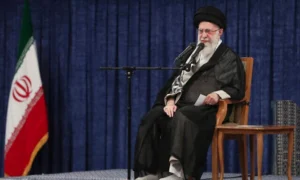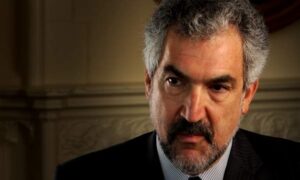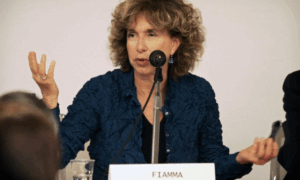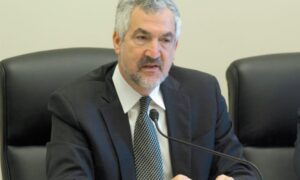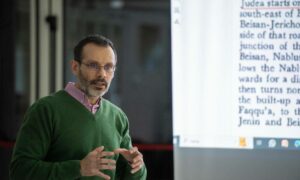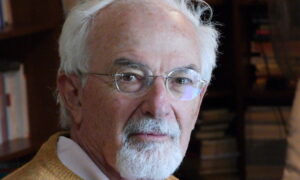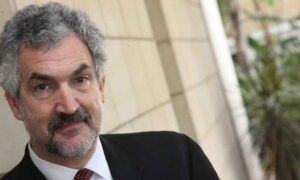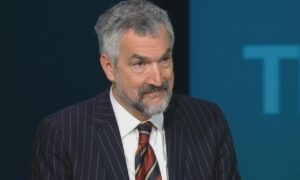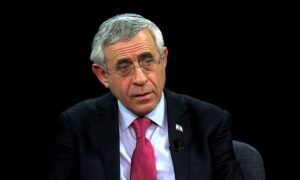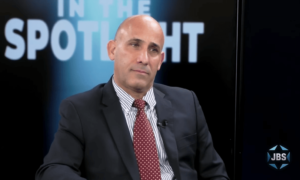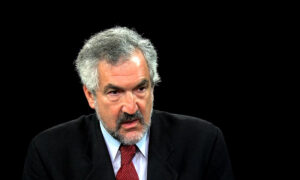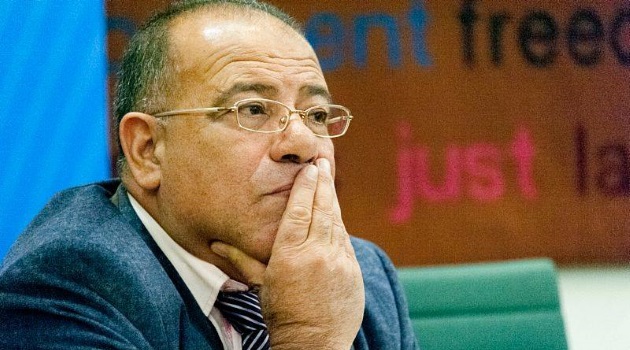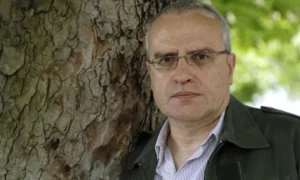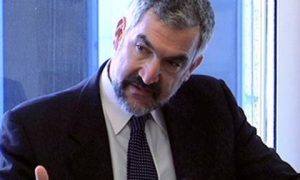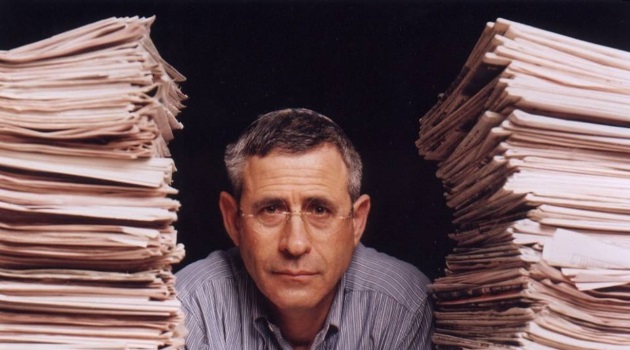Following Donald Trump’s decision to declare that Jerusalem is Israel’s capital and accordingly to relocate the USA embassy from Tel Aviv to Jerusalem, L’informale has asked to some among the foremost analysts of the Middle East and the Arab-Israeli conflict (Daniel Pipes, Bat Ye’or, Martin Sherman, Matthias Kuntzel, Yoram Ettinger), their opinion about the American president decision and its political implications in the shifting Middle Eastern scenario.
According to you what is the political relevance of Donald Trump’s decision to declare Jerusalem the capital of Israel and to relocate the American embassy from Tel Aviv to Jerusalem?
Daniel Pipes: The embassy move strengthens the U.S.-Israel tie which in turn makes Palestinians and others more likely to end their hostilities against the Jewish state.
Bat Ye’or: The recognition of Jerusalem as the capital of the State of Israel is a victory of justice against the virulent hatred that denies the Jewish people its history and identity in order to criminalize it. The recognition of the historical link of the Jewish people with Jerusalem is, in its simplicity, similar to the recognition of the Holocaust camps by the American armies: it is an ascertainment, that of a reality which inversely exposes the perversity of its coming in to being. Trump has put down this Europe which was built in 1973 in the petrodollar vassalage, the triumphalism of anti-Semitic anti-Zionism disguised as “the just fight of a Palestinian cause” instrumantalized by Eurabia, the Euro-Arab policy, in order to perpetuate the conflict until the destruction of Israel, replaced by Palestine. Arafat was both the idol of Europe and his toy. Today, it is this Europe – this Eurabia – that Trump confronts.
Martin Sherman: The recognition of Jerusalem as the capital of Israel albeit without specification of its territories boundaries is undoubtedly a significant — and long overdue initiative. Hopefully it will help bring to an end the perverse, anomalous and scandalous situation whereby Israel, as the sovereign nation-state of the Jewish people, is denied the right to determine its own capital–a right enjoyed by every other sovereign state on the face of the globe. In this regard, President Trump must be applauded for his moral courage and his refusal to surrender to the dictates of conventional wisdom and political correctness in honoring his electoral pledge. His decision clearly corresponds with the will of the American people as reflected by the 1995 decision by Congress to declare Jerusalem the capital of the Jewish state and to mandate the locating of the US Embassy in the city. Hopefully this will prevent any future president from rescinding this recognition. However, the real test of its substantive – rather than declarative –significance will be the actual relocation of the Embassy and whether President Trump, or his successor – as the move is scheduled to take several years, will be steadfast enough to follow through with its implementation Accordingly, while in the immediate short term, the decision is clearly a very welcome and positive development– it is still premature to judge its long term impact and value. Much of this will, in my opinion , depend on Israel’s behavior and how resolute and robust it will be, in terms of both its security and diplomatic strategy, in resisting and rebuffing pressures from the international community and intimidation from the Islamic world– thereby assisting in promoting and preserving Trump’s courageous and historic initiative. A word of caution: If either US or Israel are seen as backtracking on this decision–including the relocation of the embassy–this will constitute a tremendous victory for the power of Islamic extortion and bullying –making future demands all the more difficult to resist. Any such move could turn a potentially great Zionist victory into a dangerous defeat.
Matthias Küntzel: Trump’s decision does not change but acknowledge reality which marks an important change of attitude. Fatah and Hamas need to know that they are running against a thick wall as long as they deny or minimize the Jewish affiliation with Jerusalem. Thus, Trumps rejection of wishful thinking is indeed “a long-overdue step to advance the peace process,” to quote the president.
Yoram Ettinger: Should President Trump proceed to relocate the US Embassy from Tel Aviv to Israel’s capital city, Jerusalem, it would bolster the US posture of deterrence, by defiance of – rather than submission to – Arab/Muslim pressure and threats. In the short-run it might burden the US with declining popularity in some circles, but in the long-run it would enhance strategic respect toward the US – by Saudi Arabia, other Gulf states, Jordan and Egypt, as well as other pro-US countries – as a credible ally. If the US Embassy were to be relocated to Jerusalem, it would send a message to the Arabs that they cannot rely on the US – as they were until then – to maximize their demands for Israeli concessions. Such a development could set future peace-negotiation on a more realistic ground. The long-term Arab reaction to the relocation of the US Embassy to Jerusalem, if it will take place…, would highlight the Arab order to national priorities, making them focus on the top threats to the survival of Arab regimes as the Ayatollahs and other forms of Islamic terrorism, while paying lip service to the Palestinian issue.
The decision happens in a new Middle East scenario where the main Sunni states specifically Saudi Arabia, are converging toward Israeli in the name of the common threat represented by Iran. Would you like to comment on this?
Daniel Pipes: Part of the incentive for a Palestinian-Israeli deal is to ease the way for Saudi-Israeli cooperation against Iran.
Bat Ye’or: I believe that the enlightened leaders of the Muslim world and many of its intellectuals want to come out of the legacy of fanatical hate bequeathed by the Mufti of Jerusalem and the Arab nationalism created as an Islamic-Christian alliance against Zionism. This totalitarian, racist movement allied with Nazism fought all non-Arab and non-Islamic national identities. It was this movement favored by the Western powers after the First World War, that stifled any hint of regional Christian autonomy. Today we see the result. The twenty-first century must free itself from the genocidal heritage of the twentieth century: Armenians, Assyrians, Chaldeans, Greeks, Jews, Kurds in Iraq. The Arab and Muslim voices of reason and understanding were suppressed by assassinations such as that of the Jordanian emir Abdallah, ready to recognize Israel. I believe that the Muslim world will be able to overcome its impasse and that peace will enable it to develop its economy and the well-being of its well-endowed populations.
Martin Sherman: I am very much a “Sunni skeptic”. I believe the attitude of the Sunni countries towards Israel reflects a balance between their fear of Iran, on the one hand; and their loathing of the Jewish state, on the other. At the moment, the former, the fear of Iran, is greater than the latter, the loathing of Israel. However, once this subsides, the latter will, in all likelihood, reassert itself–possibly with a vengeance. Accordingly, despite the evident short term tactical advantages entailed it this seeming shift in Sunni sentiment, it would be most imprudent to base Israel’s long term strategic planning on the assumption that it will endure–particularly, as opposed to the position of the regimes. There is pervasive and obdurate enmity toward Israel among the general population across the Arab world – including in countries with which Israel has formal peace agreements, such as Egypt and Jordan. Clearly, this limits the degree and depth of any potential bond between Israel and Sunni world, which it should be remembered spawned the Salafi/Wahhabi ideologies and the Taliban, al-Qaeda and ISIS. In any event, it should definitely not provide any inducement for Israel to make any far-reaching, risk-fraught and largely irrevocable concessions on the Palestinian issue. If the Sunni states, require Israeli aid in confronting the threat from Shi’ite Iran, they cannot be allowed to condition their acceptance of that aid-the pursuit of their own security interests-on Israeli concessions, especially as such concessions would clearly undermine Israel’s security, and hence Israel’s ability to help secure their own Sunni security. Indeed little could be more absurd.
Matthias Küntzel : There is a certain risk that the incipient cooperation of some Sunni states with Israel might suffer damage due to Trump’s decision. I think this risk is currently low – it seems to me that it was necessary to accept it.
Yoram Ettinger: The counter-terrorism and intelligence cooperation between Israel and Saudi Arabia, Egypt, Jordan and other pro-US Arab regimes is at an all time high due to the clear and present, lethal threats – by Sunni and Shite terrorism – to each one of these Arab regimes. While Saudi Arabia and the other pro-US Arab Gulf States have not reconciled themselves to the existence of an “infidel” Jewish State in the Abode of Islam – which has been divinely ordained only to “believers” – they have realized that the Jewish State constitutes the most effective life-insurance agent in the Middle East.
There is a wide perception that the Arab-Israeli conflict or Palestinian-Israeli conflict is no more on the top shelves for the Arab world, especially for Saudi Arabia. The latest rumors are that prince Mohamed bin Salman, the most probable new king of the country has told Palestinian Authority president, Mahmoud Abbas, that it would be better for him to endorse the new American peace plan of which we still don’t know the details. What is your opinion?
Daniel Pipes: Yes, Mohammad bin Salman seems eager to improve relations with Israel; this is the silver lining of Obama’s horrible Iran deal. These are impeded by the Palestinians, so he is pushing for a deal.
Bat Ye’or: I think Trump, as a wise politician, had to secure his back. He toured the Middle East and consulted with his leaders. It must be understood that the Palestinian affair was fabricated between 1967 and 1973, because if there had been a Palestinian people, it would have manifested itself and would have claimed its autonomy in the Ottoman Palestine and the Palestine of 1948-67. Palestinians are the arm of the Islamic jihad of Ummah and European anti-Semitism. That said, I think Israel should not keep territories that are predominantly populated by a hostile population that has the right to live according to its customs and culture. I believe that a Palestinian federation with Jordan, which is 70% of historic Palestine, would be beneficial. The very name of Palestine, which was given by a Roman emperor to Judea in 135, has nothing to do with the Arab and Islamic world and could be abandoned. Its borders were nonexistent until the British Mandate, and its topography was exhumed by Western geographers thanks to the Bible. Since its Arabization / Islamization, Palestine has never been more than a ruined and abandoned region, as was Athens under the centuries of Turkish rule. Trump’s initiative breaks Eurabia’s policy and opens a new path to peace. I hope that the Arab world will recognize its true friends from its fake ones and will be able to engage in it. When money stops feeding the united networks of jihadism and European anti-Semitism, great progress will have been made.
Martin Sherman: Martin Sherman: The “Palestinian issue” was never really at the top of the agenda in the Arab world but was merely a means to undermine the legitimacy of Israel as the nation-state of the Jewish people. I do not have any authoritative information on the “new American peace plan” but if it involves significant Israeli territorial concessions, it is Israel, not Abbas, who should reject it. Likewise if it entails building an enlarged Gaza in Sinai, it should be rejected. After all, if a small Gaza has created huge problems for security and stability, how could creating a big Gaza be a constructive measure that could lead to a secure and stable solution? The problem is not to locate an allegedly vacant piece of real estate on which to settle the Palestinian-Arabs but contending with the enduring Arab-Muslim rejection of Israel–not because of what it does , but because of what it is…Jewish. It would be perilously naive to believe that any self-governing Palestinian entity set up–whether in Judea-Samaria or Gaza–would not rapidly become a platform from which to launch attacks against Israel. For the only non-coercive (or at least non-“kinetic”) approach that can ensure the long-term survival of Israel as the nation-state of the Jewish people – see Rethinking Palestine: The humanitarian paradigm
Matthias Kuntzel: This conflict remains central to the Iranian regime and its Palestinian allies. And to the European Union! The EU insists on wishful thinking and tends to place itself more on Iran’s side than on the side of the United States, not only with respect to the nuclear deal with Iran and the issue of Iranian missile tests but also with regard to Trump’s Jerusalem resolution. Europe is currently marching in a direction that splits the West – this is what worries me most.
Yoram Ettinger: The Arab Tsunami, which erupted at the end of 2010 and is still raging in the Middle East, has highlighted the reality of the Arab priorities. None of the tectonic eruptions of the last seven years has been directly, or indirectly, related to the Palestinian issue. None of the toppled Arab regimes lost power due to its attitude toward the Palestinian issue. In fact, each one of these regimes expressed its allegiance to the Palestinian issue on many occasions. They showered the Palestinians with much talk, but no walk. The Saudis, just like all Arab regimes, are aware that the Palestinians have played a destabilizing role in the Middle East since the involvement of Mahmoud Abbas and Arafat in subversion and terrorism in Egypt (in the 1950s), Syria (1960s), Jordan (1968-1970), Lebanon (1971-1982) and Kuwait (1990), and therefore they have not flexed their muscle – other than speaking muscles – on behalf of the Palestinians. Still, the Arabs will always outflank the US from the maximalist side, should the US present another “peace plan.” The Arabs want to be perceived as more patriotic than the US when it comes to the Palestinian issue. Saudi Arabia and other pro-US Arab countries hope that the US would refrain from submitting another “peace plan,” and focus on the Ayatollahs-machete, which is literally at their throats.


